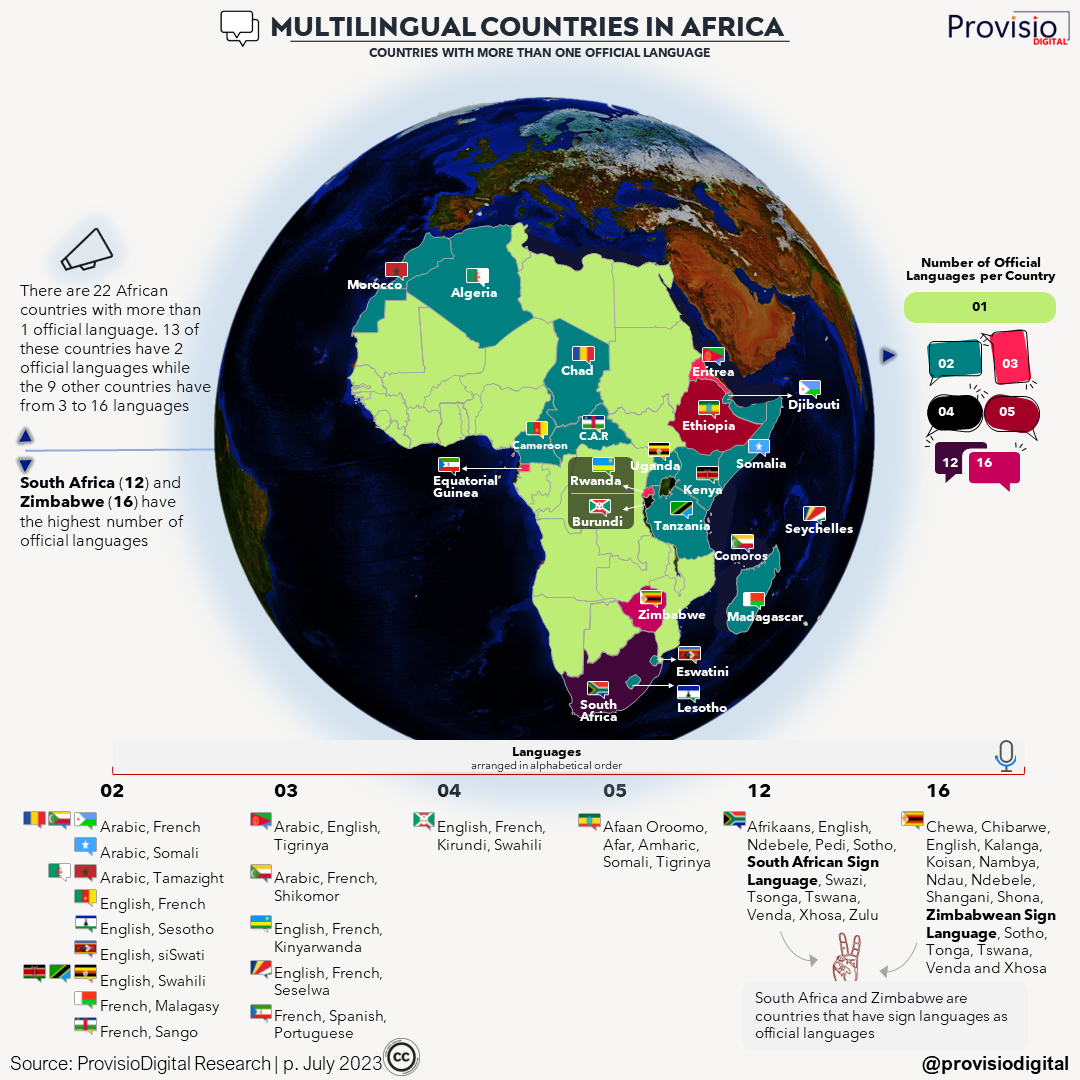Why We L👀ked Into This »🎨
|
It was identified that there are 38 different official languages across Africa and the major official languages in Africa are English, French, Arabic, Portuguese, and Swahili.
💡 Multilingualism in Africa – Analysis
Despite the fact that colonial languages continue to dominate official communication, there is growing recognition of the importance of promoting African languages and protecting linguistic diversity on the continent. Multilingualism is a defining characteristic of Africa, where hundreds of languages are spoken across the continent. There are 33 countries in Africa that recognize just one official language while 22 countries recognize more than one. Of these 22 countries, 13 are bilingual and 9 are multilingual (3 languages and above).

From our analysis, it was observed that Zimbabwe has the highest number of official languages in Africa (16), including sign language. South Africa is the second highest multilingual with 12 languages. Zimbabwe and South Africa also share similar languages such as Tswana, Venda and Xhosa. Other multilingual countries in Africa are (as listed on the visual) Eritrea (3), Comoros (3), Rwanda (3), Seychelles (3), Equatorial Guinea (3), Burundi (4), Ethiopia (5), South Africa (12) and Zimbabwe (16).
💡 Sign Languages in Africa
Though Uganda was the first country in Africa and one of the early adopters in the world to achieve sign language recognition in 1995, it is yet to be officially recognized as done in Zimbabwe (2010) and South Africa (2022). Other African countries with sign language legislation include Angola, Kenya and Namibia. The Kenyan Sign language is one of the languages used to conduct parliamentary business in Kenya, alongside English and Kiswahili.
💡 Why Have More Languages?
The African Union’s (AU) constitution provides for Arabic, English, French, Portuguese, Spanish, Kiswahili and any other African language Swahili as its official language. Before Swahili was added as an official language, there have been calls to adopt it (and promote other African languages) as official languages. The European Union, adopts the language of every (new) member – 24 languages. Currently, there are 41 indigenous languages (including South African and Zimbabwean sign languages) used as official languages.
In conclusion, the use of official languages in Africa is complex and influenced by historical, political, and social factors. While colonial languages continue to dominate, there is a growing recognition of the importance of promoting African languages and protecting linguistic diversity on the continent.

This work is licensed under a Creative Commons Attribution-NonCommercial 4.0 International License.
